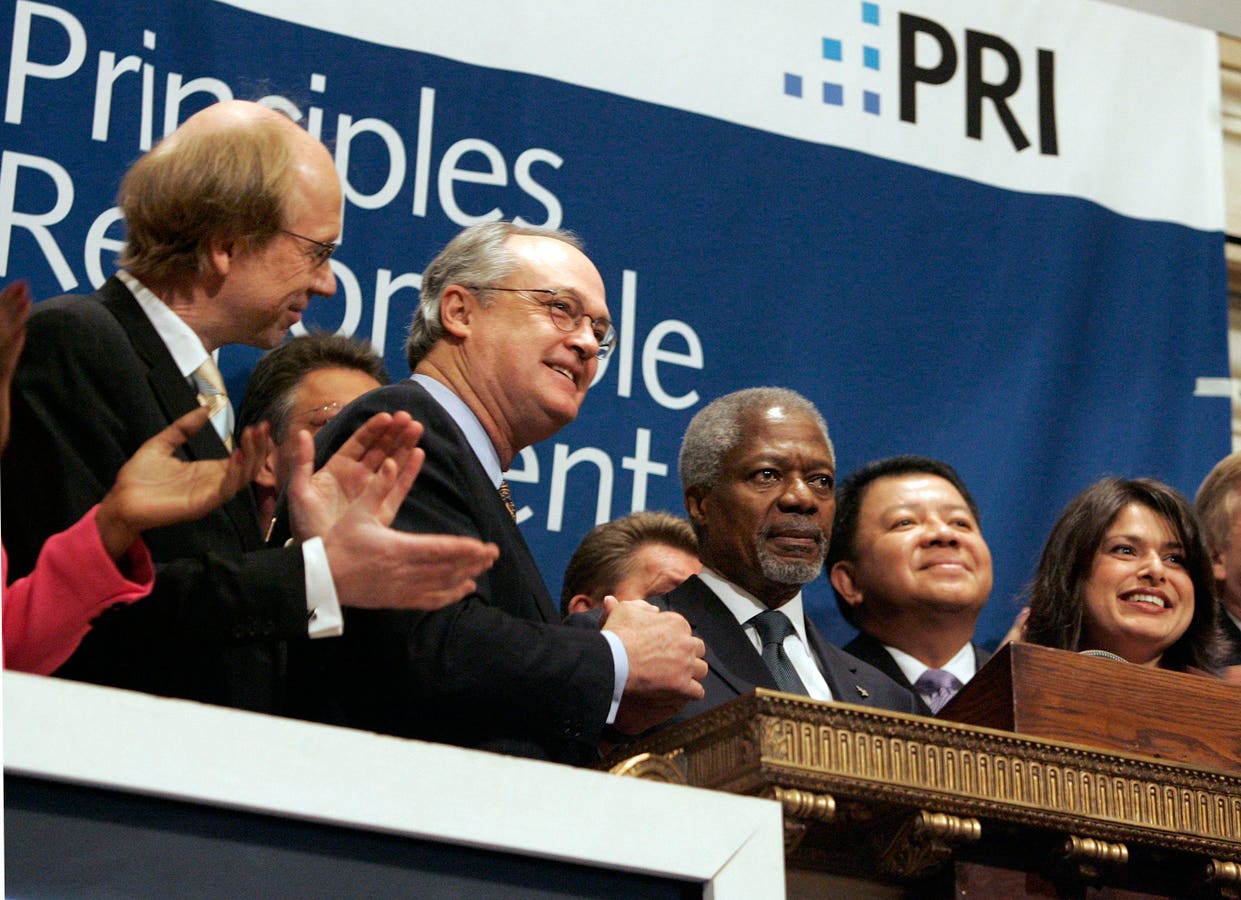While pockets of ideologically-driven ignorance remain regarding sustainable investing, such as the U.S. Department of Labor, mainstream investor investors now recognize the value to their clients and beneficiaries of incorporating material environmental, social, and governance (ESG) issues into the asset allocation and portfolio construction strategies. One consequence of this is that there are now around 3,100 signatories (asset owners, asset managers, and service providers) to the Principles for Responsible Investment (PRI) with a total of $110 trillion in assets under management (AUM). PRI signatories commit to six principles:
- Principle 1: We will incorporate ESG issues into investment analysis and decision-making processes.
- Principle 2: We will be active owners and incorporate ESG issues into our ownership policies and practices.
- Principle 3: We will seek appropriate disclosure on ESG issues by the entities in which we invest.
- Principle 4: We will promote acceptance and implementation of the Principles within the investment industry.
- Principle 5: We will work together to enhance our effectiveness in implementing the Principles.
- Principle 6: We will each report on our activities and progress towards implementing the Principles.
The work of PRI is to be lauded. It has played a fundamental role in improving investment decisions for the clients and ultimate beneficiaries of asset owners and asset managers. At the same time, it is important to understand if asset owners and asset managers who are its signatories are putting these principles into practice. Here some work needs to be done. Some useful insights can be gained in a recent paper “Analyzing Active Managers’ Commitment to ESG: Evidence from United Nations Principles for Responsible Investment” by Soohun Kim of the Georgia Institute of Technology and Aaron S. Yoon of Northwestern University. They studied 474 active U.S. funds managed by 86 different investment management firms during the period 2006 to 2017. The purpose of their study was to compare fund flows (e.g., new money going into and out of the fund), changes in fund level ESG scores, changes in voting patterns, and changes in fees and performance. The results are surprising and somewhat counterintuitive and raise some important questions. When I asked Professor Yoon why and he and Professor Kim did this study, he replied: “UN PRI is no doubt one of the most important ESG initiatives, but no one has bothered to examine the follow through of asset manager signatories. We felt that it was important to understand whether signatories were doing a good job and who were the better performers amongst them.”

Assistant Professor Aaron Yoon, Kellogg School of Management, Northwestern University | NORTHWESTERN UNIVERSITY
First, in terms of fund flows, in the six quarters after a firm becomes a signatory to the PRI, it experiences a positive average fund flow of 4.9 percent for the next six quarters. This means that investors who care about ESG regard PRI membership as a positive signal. The investment firm benefits by getting some combination of more money from existing clients and money from new clients. This finding makes sense. After all, Principle 1 commits the firm to incorporating ESG issues into investment analysis and decision making. Furthermore, Principle 3 commits the signatory to seek disclosure on ESG issues by the companies in their portfolio. This disclosure can heighten the company’s attention to ESG issues, thereby improving its performance on them with a benefit to financial performance. In another paper, “Corporate Sustainability: First Evidence of Materiality,” Yoon and Professor George Serafeim of Harvard Business School and Dr. Mozaffar Khan of Causeway Capital Management very convincingly show the good performance on material ESG issues as defined by the Sustainability Accounting Standards Board contribute to financial performance.
Unfortunately for these clients, and raising a flag for sustainable or ESG investing, “fund returns significantly deteriorate post signing the PRI despite signatories’ enjoying higher aggregate dollar revenue (Figure 1).” Although fees do not go up, the investment firm receives higher revenues due to greater assets under management. For this set of firms, becoming a PRI signatory is good for them but not good for their clients.
SUBSCRIBE TO OUR NEWSLETTER
Subscribe our newsletter to receive the latest news, articles and exclusive podcasts every week


